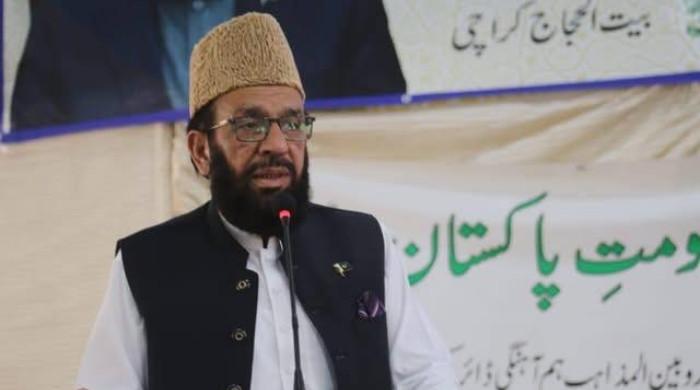Bureaucracy's 'all outstanding' era draws to a close
PM Shehbaz Sharif approves new performance management scheme in FBR for Customs and Inland Revenue
April 21, 2025

- Scheme to be extended to all cadres of CSS to replace present system.
- Under newly approved system, top performers will be paid better than others.
- New system totally digitised to keep identities of 45 peers anonymous.
ISLAMABAD: In a major reform to boost the performance of country’s civil services, a new performance management scheme has been introduced in the Federal Board of Revenue (FBR) for Customs and Inland Revenue and will be extended to all services and cadres of the Central Superior Services to replace the present flawed and manipulated system of Performance Evaluation Reports (PERs).
Prime Minister Shehbaz Sharif has approved the scheme which, in the case of the FBR, has lowered the earlier assessment of 98% of Customs and Inland Revenue Service (also known as Income Tax Group) officers as “outstanding” and “very good” to 40% only.
Under the previous system, 99% of Customs and Income Tax officers were judged as the best (“A” category) in terms of their integrity. Under this system, the top performers will be paid better than others. The performance and consequent compensation package will be reviewed every six months.
The Establishment Division has been asked by the prime minister to study and implement the FBR’s new performance management system for all other services and cadres of the Central Superior Services. It is believed that this system would dramatically change the performance and effectiveness of the country’s civil services.
The new system is the brainchild of incumbent FBR Chairman Rashid Langrial who, with the support of his team, designed the entire scheme, tested it, and then successfully implemented it for the last six months’ assessment of each and every officer of the Customs and Inland Revenue Service.
Unlike the past, where almost every officer, irrespective of his repute and performance, was assessed as “outstanding,” “very good,” and “very honest,” now from “A” category to “E,” each category would have 20% of officers, who would be judged on the basis of a fully digitised performance management regime focusing on officers’ integrity and quality of work.
Not only has the assessment system of each officer been made free from any possible manipulation or interference, but those falling in better grades will also be compensated on the basis of their performance.
In the case of the FBR, 20% “A” grade officers have started getting four times higher salaries, 20% “B” grade officers get three times higher salaries, 20% “C” grade officers get two times higher salaries, whereas “D” category 20% officers get one extra salary.
There is no extra compensation for “E” grade officers. This compensation scheme will be reviewed every six months on the basis of half-yearly assessment of each and every officer. In the case of FBR officers, there is hardly a financial implication of a few billion rupees.
The new performance management regime has been designed in a manner that it can neither be manipulated nor interfered with, nor be dependent on the whims and wishes of any individual, senior, or even the ruler.
Under this system, already tested and launched for over 1,500 officers of the Customs and Inland Revenue Service, each officer is reviewed by 45 peers (seniors, juniors, civil service colleagues and batchmates) every six months through an anonymous forced-ranking system. The forced-ranking system ensures that each of the five categories is restricted to 20%. This means none of the services or cadres would have more than 20% “outstanding” officers.
The new system is totally digitised using advanced cybersecurity tools to keep the identities of the 45 peers completely anonymous. Access to the system will be available to the FBR chairman and three members of the FBR, but none of them can change the report of any officer or manipulate it.
The three FBR members can only have joint access to the data, and any unauthorised activity regarding the data will be notified to five different persons, but no one will be able to make any changes.
A four-stage criteria, based on the likelihood to know, is used to identify 45 peers for each officer to review. Besides peer scoring on integrity, there will be a system for quality of work review by a technical panel.
The technical panel, which includes retired FBR officers and other tax practitioners, will assess the quality of work of the officers randomly selected by the digitised system.
The FBR has successfully completed the assessment of all its officers for the last six months under the new regime.
Originally published in The News











